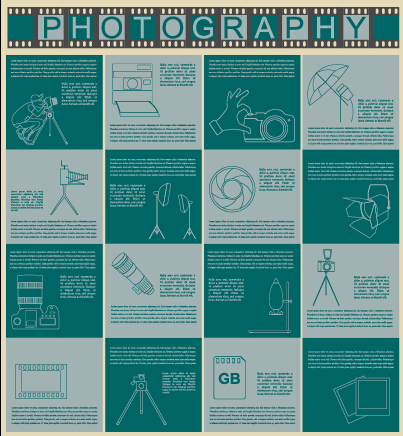Digital Photography Tips For Beginners: Mastering Your Camera In No Time At All
Digital Photography Tips For Beginners: Mastering Your Camera In No Time At All
Blog Article
Personnel Author-Weber Monroe
When you first grab your electronic camera, it can feel overwhelming with all the setups and options available. You may find yourself questioning just how to browse aperture, shutter rate, and ISO effectively. Mastering these fundamentals is vital, but there's even more to photography than simply technical knowledge. Understanding structure strategies and lighting problems can boost your photos considerably. So, suppose you could find out straightforward strategies to boost your skills and begin recording remarkable images earlier than you assume? Allow's check out how to change your photography trip.
Comprehending Camera Settings
Recognizing your cam settings is essential for recording spectacular photos. When you pick up your camera, acquaint on your own with the 3 major setups: aperture, shutter speed, and ISO. Each plays a crucial function in how your photos end up.
Begin with aperture, which controls the amount of light going into the lens. A bigger aperture (reduced f-number) lets in much more light and produces a stunning history blur, excellent for portraits. Alternatively, a narrower aperture (higher f-number) keeps more of the scene in emphasis, suitable for landscapes.
Next off, focus on shutter speed. This setting establishes how much time your video camera's sensor is revealed to light. A rapid shutter rate ices up motion, which is terrific for action shots, while a sluggish shutter speed can create sensational results like smooth water in landscapes.
Last but not least, change your ISO. This setup influences your video camera's level of sensitivity to light. A higher ISO serves in low-light scenarios but can present sound or grain. Go for the lowest ISO possible while still attaining proper exposure.
Make-up Methods
When you're out shooting, structure can make all the distinction in just how your pictures reverberate with viewers. Start by using the regulation of thirds; picture your framework split into nine equivalent sections with two straight and 2 vertical lines. Setting crucial elements along these lines or at their junctions to develop equilibrium and passion.
Next, take into consideration leading lines. These all-natural lines in your scene, like roadways or rivers, draw the audience's eye into the photo, assisting them with the story you're telling.
http://golden11barbera.booklikes.com/post/6569351/learn-just-how-to-select-the-excellent-electronic-camera-tailored-to-your-photography-style-and-requires-yet-are-you-taking-into-consideration-all-the-crucial-elements forget mounting; use elements within your scene, like trees or windows, to produce a structure around your topic, including depth and focus.
Additionally, watch on your history. A chaotic background can sidetrack from your primary topic, while a basic one assists it stand out.
Finally, experiment with balance and patterns; they can produce a striking photo that catches attention.
Learning Illumination Conditions
Understanding illumination problems is crucial for catching sensational photos, as the appropriate light can transform an average scene into something remarkable.
Beginning by observing all-natural light at various times of the day. Early mornings and late afternoons provide the very best light, known as the golden hour. The soft, cozy tones during these times can boost your photos wonderfully.
Don't avoid cloudy days either; diffused light can reduce rough shadows and produce a pleasing impact, specifically for pictures.
Explore backlighting by positioning your topic versus the source of light. This strategy can create a wonderful halo impact and add deepness to your photos.
Focus on your camera settings too. Readjust Jen Worley Photography , aperture, and shutter speed to fit the illumination problems. A greater ISO can aid in reduced light, yet be cautious of grain.
Make use of a tripod in darker atmospheres to avoid blur.
Last but not least, don't neglect synthetic illumination. Flash and continuous lights can be excellent tools for regulating light in tough problems.
Conclusion
Finally, mastering your camera doesn't have to be frustrating. By comprehending your settings, applying make-up techniques, and utilizing the power of natural light, you'll quickly boost your digital photography abilities. Keep in mind, exercise makes ideal, so venture out there and experiment with your newly found knowledge. With time and devotion, you'll be recording magnificent pictures that reflect your special perspective. Take pleasure in the trip, and do not fail to remember to enjoy while you're at it!
